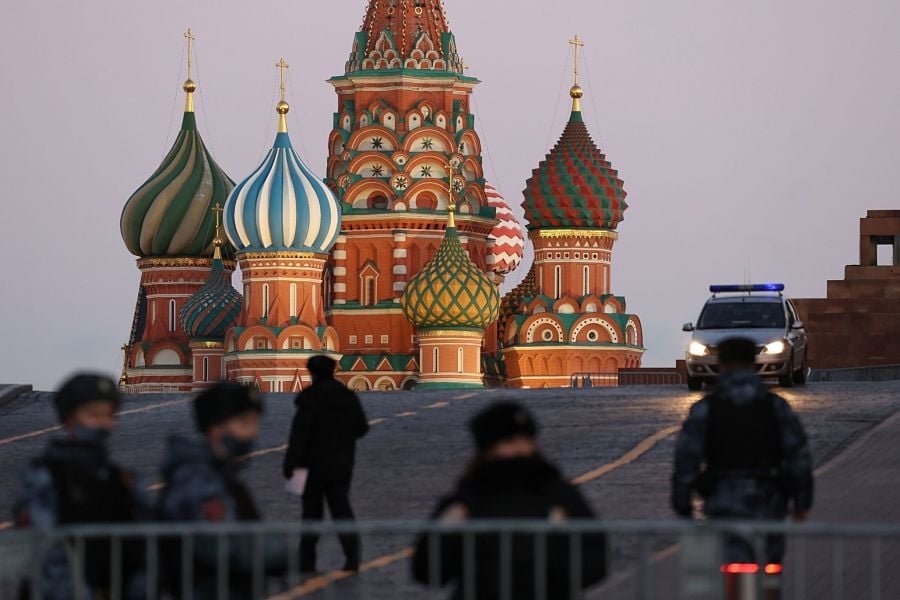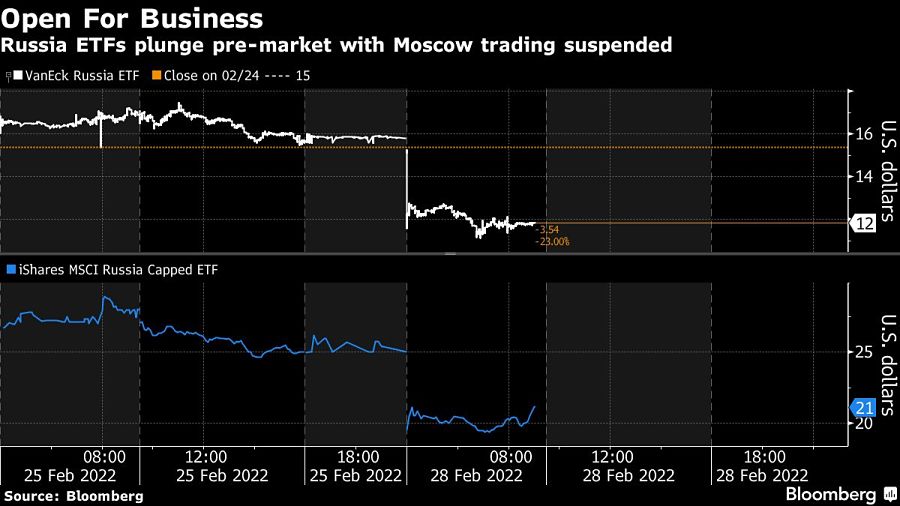

With Russia’s stock market closed, U.S. exchange-traded funds are signaling the scale of the rout facing the nation’s equity market.
The VanEck Russia ETF (RSX) and the iShares MSCI Russia Capped ETF (ERUS) plunged 26% and 20%, respectively, in U.S. trading early Monday. Millions have poured into the funds in the past week, some of which was likely create-to-lend activity in which new shares are created for short sellers to borrow and bet against.
The Bank of Russia halted trading in Moscow on Monday, one of several measures unleashed in a bid to shield the nation’s economy from sweeping sanctions. That has turned the two ETFs, which primarily track Russian energy stocks, into useful price-discovery tools for traders seeking to navigate the geopolitical turmoil caused by Russia’s invasion of Ukraine.
“The ETF has proven itself time and time again, especially around geopolitical events when liquidity is difficult to access,” said Athanasios Psarofagis, a Bloomberg Intelligence ETF analyst who noted that the ETFs predicted moves last week in Russia’s markets. “ETFs are suppose to be index trackers, but when that process breaks down, they take on the role of price-discovery vehicles — and it’s impressive how accurate they have been.”

RSX and ERUS have plunged more than 40% in 2022 as geopolitical risks built, ranking them as the two worst-performing non-leveraged U.S.-listed ETFs so far this year, according to data compiled by Bloomberg. The losses have accelerated in the past week in the face of mounting sanctions, with the U.S. banning transactions with Russia’s central bank, the Russian National Wealth Fund and the Ministry of Finance.
The drop for the Russia-tracking ETFs is reminiscent of March 2020, when fixed-income funds continued to trade even as cash markets effectively froze amid pandemic-fueled turmoil.

The looming threat of federal funding cuts to state and local governments has lawmakers weighing a levy that was phased out in 1981.

The fintech firms' new tools and integrations address pain points in overseeing investment lineups, account monitoring, and more.

Canadian stocks are on a roll in 2025 as the country prepares to name a new Prime Minister.

Carson is expanding one of its relationships in Florida while Lido Advisors adds an $870 million practice in Silicon Valley.

The approval of the pay proposal, which handsomely compensates its CEO and president, bolsters claims that big payouts are a must in the war to retain leadership.
RIAs face rising regulatory pressure in 2025. Forward-looking firms are responding with embedded technology, not more paperwork.
As inheritances are set to reshape client portfolios and next-gen heirs demand digital-first experiences, firms are retooling their wealth tech stacks and succession models in real time.
